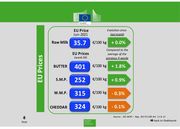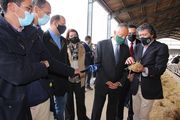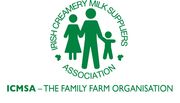EMB Newsletter September 2021
Newsletter as PDF
Contact
EMB - European Milk Board asbl
Rue de la Loi 155
B-1040 Bruxelles
Phone: +32 - 2808 - 1935
Fax: +32 - 2808 - 8265
Dear dairy farmers, dear interested parties,

First of all, I would like us to take a moment to think about the losses of lives and serious damages caused by severe weather in Central Europe in July. Belgium and Germany were hardest hit, but France, the Netherlands, Luxembourg and regions in other countries were also affected. I would like to present my sincere condolences to the people and farmers in these areas. In August, we witnessed the very opposite: fires in the south of Europe. Looking at the weather and climate, the situation seems to be serious.
Here in Denmark, summer is back at long last and we are starting the fourth cut of grass. At European level, the EMB is currently sending out its new calculations on the costs of producing milk. We calculated the costs for eight countries and included an EU average for the first time. The revealing numbers show yet again that the prices paid to farmers are far too low and that we are losing money by producing milk. Prices are currently at an average level, but do not cover all costs, mainly due to increasing costs. Some of which, feed for example, are set to rise even further – partially caused by climate change and extreme weather. Furthermore, the next contracts that producers are about to conclude will most likely make the situation worse. The price has to go up between 3 and 5 cents just to cover these extra costs.
As far as the EU institutions are concerned, the European Commission (EC) has recently presented a series of legislative proposals to achieve its climate targets (-55% greenhouse gas emissions by 2030 and carbon neutrality by 2050). Together with the recently adopted CAP reform and the 'Farm to Fork' strategy, this will have a huge impact on farming and milk production. We, as EMB, will be following these processes very closely. After all, it is important to know how the EC intends to decrease and control emissions, from the single cow to entire stables. Will the normal way cows live still comply? Or do we have to reduce their emissions with supplements or even chemically? These two opposite approaches will have to be looked at in detail.
With the CAP reform, the devil is in the detail: it is crucial how each country will implement it on a national or regional scale. Member States have the possibility to adapt the reform, which means that each country could get a different one, potentially increasing differences between milk producers. It will certainly make it even more difficult to calculate production costs for each country. We will have to stay vigilant to make sure that farmers in different countries will not be played off against each other.
Let's stay united, attentive and work together! The recent cost study is a solid basis to take an important step towards fair and cost-covering prices this autumn.
Kjartan Poulsen, EMB Vice-President and President of Landsforeningen af Danske Mælkeproducenter
Portugal: Dairy Farmers with the lowest milk price in Europe ask the President to intervene
Commission study predicts benefits of EU environmental strategy will be lost as production moves elsewhere in ‘carbon leakage’
Impressum
European Milk Board asbl
Rue de la Loi 155
B-1040 Bruxelles
Phone: +32 2808 1935
Fax: +32 2808 8265
E-Mail: office@europeanmilkboard.org
Website: http://www.europeanmilkboard.org





